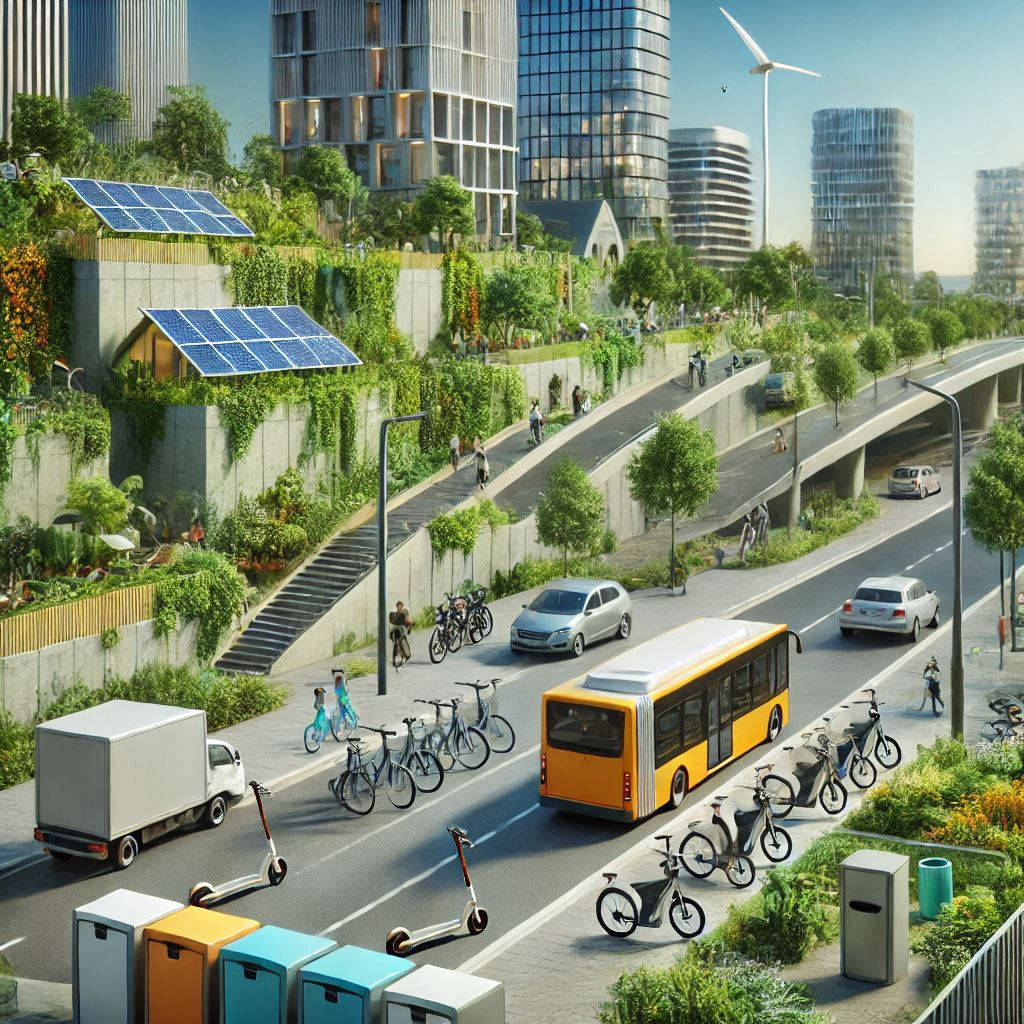The ‘environmental detox’ is like a guilt-free Christmas dinner, filling the planet with clean energy and fresh air. If binge eating is the sweet sin, our healthy regime is to reduce, reuse and recycle. Just like switching from Christmas cakes to a salad of renewables, an environmental detox makes the planet lighter and happier!
- What is meant by ‘Environmental Detox’?
- Recommended practices and benefits
- Urban environmental detox: Copenhagen, Denmark
What is meant by ‘Environmental Detox’?
The term ‘detox‘ is derived from the English word ‘detoxification’ and refers to the treatment of a state of intoxication by neutralising andeliminating toxins.
Originally used in the field of medicine to refer to treatments aimed at eliminating harmful substances from the body, the concept has since been extended to the environmental sphere.
This term means a series of actions and changes that individuals, communities and companies can take to reduce pollution and improve the health of our planet.
Environmental detoxification, as opposed to remediation, which focuses on technical and targeted interventions to remove or neutralise specific contaminants, embraces a broader, preventive approach.
While remediation is often used in situations of significant contamination, such as industrial sites or severely polluted areas, environmental detoxification also includes everyday practices and sustainable choices.
Recommended practices and benefits
Suggested practices include reducing waste, recycling, adopting renewable energy and minimising the use of harmful chemicals, with the aim of promoting a healthier and more sustainable environment in general.
For example, the use of renewable energy technologies such as solar and wind helps reduce CO2 emissions, mitigating climate change and improving air quality.
Regenerative farming practices and the use of less harmful chemicals in industrial production also demonstrate how such an approach can foster a healthier environment.
The benefits of a cleaner, more sustainable environment extend beyond simply reducing pollution.
A city managed in this way leads to significant improvements in public health, reducing the incidence of pollution-related respiratory and cardiovascular diseases.
From a social point of view, adopting an ecological approach strengthens the sense of community and collective responsibilit. It encourages a more conscious and environmentally friendly lifestyle.
Urban environmental detox: Copenhagen, Denmark
Copenhagen began its journey towards environmental ‘detoxification’ several years ago, with the adoption of policies and initiatives aimed at improving the quality of life of its citizens.
The city has progressively implemented measures such as the expansion of bicycle lanes, the electrification of public transport and the use of renewable energy. Many buildings in the city are constructed from recycled materials and equipped with solar panels and efficient insulation systems.
Transport, too, is designed to be sustainable: there are more than 350 kilometres of cycle paths and a fully electrified public transport system. There are buses and trains, and an efficient and extensive metro system.
The CopenPay programme encourages tourists to use public transport and bicycles, offering rewards such as free meals and museum admissions, turning tourism into a positive resource for the environment.
These efforts demonstrate how an integrated approach can lead to significant environmental and social improvements, making Copenhagen a model for other cities around the world.
Play for the planet!
